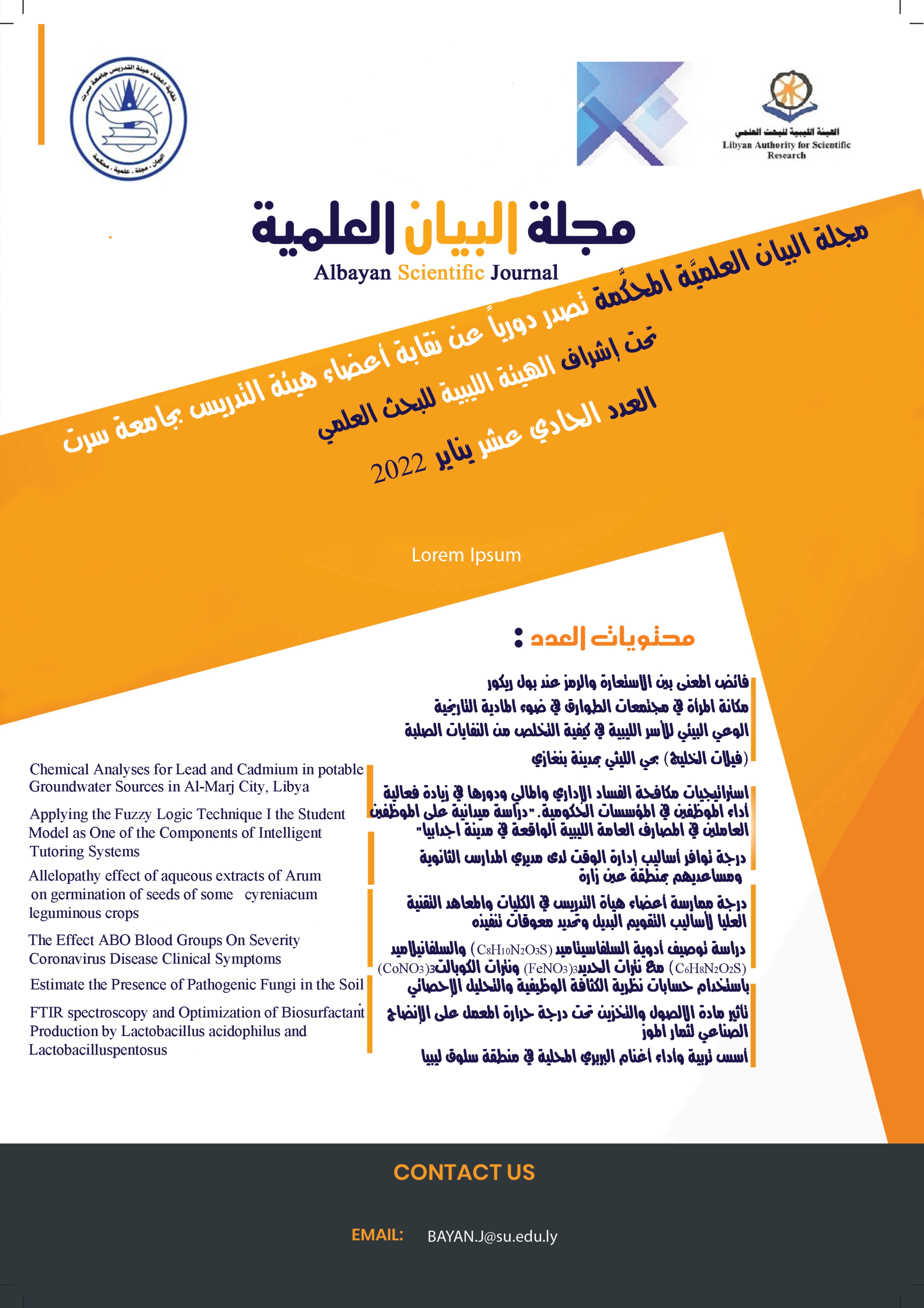التجارة الخارجية الزراعية الليبية في ظل التكتلات العربية والإقليمية والدولية (الدول العربية – دول الاتحاد المغاربي- الكوميسا)
Abstract
Libyan economic system suffers from a structural crisis despite high Libyan GDP value. This crisis is due to depending mainly on non-renewable resources in the form of petroleum products which affected by instability of revenues, because instability of world prices or because of internal conditions. The study aims to measure the contribution of Libyan agricultural foreign trade to the economic blocs that Libya shares in membership and their trends during the period of 2002-2012. The study found that Arab countries are the most suitable markets for importing their agricultural products to Libya. The indicator of the absorptive capacity of the Arab countries' markets combined from the total intra-Libyan exports showed that it improved during the first period of the study (2002-2005), as its general average during that period is about 87.6%. In addition, there is a commercial agreement between Libyan agricultural exports and agricultural imports in the various Maghreb countries, meaning that the countries of the Maghreb are considered a suitable export market for Libyan agricultural products, and it is evident that the value of the commercial compatibility index between Libyan agricultural imports and national agricultural exports in each country of the Arab Maghreb Union. As for the COMESA countries, the COMESA countries are considered a suitable market for importing Libyan agricultural imports. Finally, the study recommended the necessity of adopting various policies that would develop Libyan agricultural exports and rationalize Libyan agricultural imports to increase the ratio of exports to imports and address the chronic deficit in the Libyan agricultural trade balance under the influence of multilateral agreements and the establishment of the World Trade Organization to benefit from the obligations imposed on member states that are removed Significantly one of the limitations of international trade.













